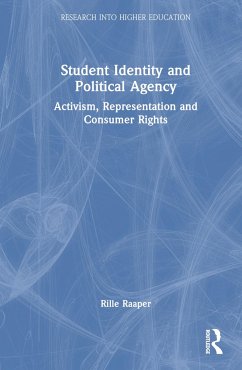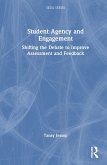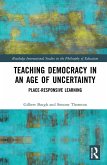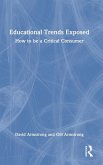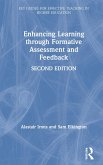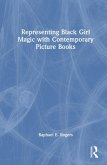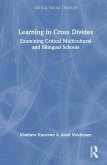Examining the intersections of education, sociology and politics, Student Identity and Political Agency provides a unique, research-informed account of the student experience in a contemporary higher education setting. By drawing on current societal context, this book has a two-fold aim: to unpack and discuss student identity in higher education, and to identify opportunities to influence positive educational and social change. This essential text encourages readers to critically examine and explore: the marketisation and massification of higher education, the homogenising model of consumerism in higher education and the impact this holds upon the diversity of the student population, the positioning of youth and student-hood in our higher education systems, past and present forms of student political agency - protest, unionism and consumer rights - in an attempt to influence positive change. Informed by recent research, this is a crucial read for academics and researchers who specialise in the field of student identity and experience, or, more broadly, in higher education transformations. This book provides a timely and academically rigorous account of contemporary student identity and agency in the global context of higher education.
Hinweis: Dieser Artikel kann nur an eine deutsche Lieferadresse ausgeliefert werden.
Hinweis: Dieser Artikel kann nur an eine deutsche Lieferadresse ausgeliefert werden.
'Rille Raaper offers a compelling new take on studenthood in an era of marketized and massified higher education. Beautifully argued and theoretically rich, this important book illuminates the diverse ways in which students exercise political agency, resisting or leveraging the tendency of the neoliberal university to position them solely as consumers. It is a must-read for anyone interested in understanding how a market system of higher education shapes students' identities as well as their efforts to better their institutions.'
Professor Jerusha Conner, Villanova University
'Student Identity and Political Agency provides an uncompromising assessment of how the commoditisation of higher education - and submission by universities at neoliberalism's high altar - has injured the identity and agency of undergraduates, frequently as habitués of youthhood. Raaper makes unambiguous the wickedness of marketisation's assault on the self-actualisation, health and wellbeing of students and powerfully debunks a myth of meritocratic plenty. At a time where the value proposition of higher education is acutely contested, this book cuts through to the cause of its destabilization and degradation, providing in turn urgent momentum for its recovery as an incubator of inclusive, agentic and sustainable futures.'
Professor Richard Watermeyer, University of Bristol
Professor Jerusha Conner, Villanova University
'Student Identity and Political Agency provides an uncompromising assessment of how the commoditisation of higher education - and submission by universities at neoliberalism's high altar - has injured the identity and agency of undergraduates, frequently as habitués of youthhood. Raaper makes unambiguous the wickedness of marketisation's assault on the self-actualisation, health and wellbeing of students and powerfully debunks a myth of meritocratic plenty. At a time where the value proposition of higher education is acutely contested, this book cuts through to the cause of its destabilization and degradation, providing in turn urgent momentum for its recovery as an incubator of inclusive, agentic and sustainable futures.'
Professor Richard Watermeyer, University of Bristol

